Bear vs. Bare
What is the difference?
Bear and bare are two commonly confused words in the English language. How do you know when to use each one?
Most people are familiar with the most common definition of bear, the brown furry animal that lives in the forest. However, bear can also be used as a verb. Both definitions are pronounced in the same way as bare, which also has multiple meanings.
It is important to learn the difference between bear and bare, because the words are used in completely different contexts. Moreover, if you use the wrong one, you might accidentally suggest that someone remove his or her clothes! That would be very embarrassing!

In order to understand the differences between bear and bare, let's look at some examples of each word.
Click Here for Step-by-Step Rules, Stories and Exercises to Practice All English Tenses
Bear
When we use the word bear, we are normally referring to a furry animal. The most common varieties of this kind of bear are the following:
brown bears and black bears
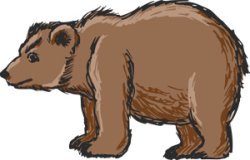
polar bears
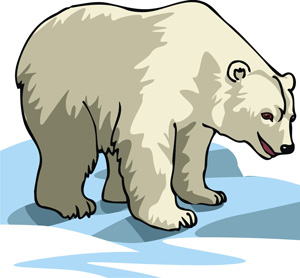
panda bears

and of course, teddy bears
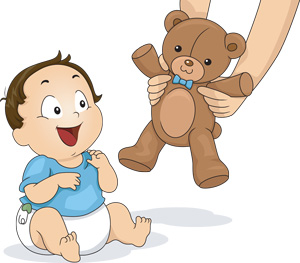
This definition of bear is a noun. The expression "a bear hug" comes from this meaning of bear. A bear hug is a very tight hug between people who love each other a lot.

Bear can also be used as a verb. When used in this sense, the word means to carry or to hold something up. For example, bridges are capable of bearing a heavy load.
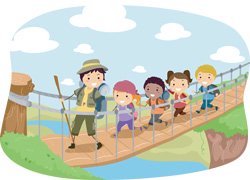
Bear also has a figurative definition, and means to stand, tolerate or put up with something. Usually when people use this meaning, they are speaking about dealing with something difficult or unpleasant, such as bad weather. Note that bear is an irregular verb. The forms are bear, bore, borne.
There are two adjectives related to bear. If something is bearable, it is tolerable or possible to deal with. The opposite of bearable is unbearable, which means that something is not tolerable or impossible to deal with.

Examples:
- 1.When I saw my uncle, he gave me a big bear hug.
(My uncle gave me a very tight hug.)

- Yesterday I found bear tracks behind my house.
(I think there was a bear behind my house, because it left footprints in the ground.)
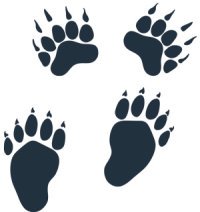
- The wheelbarrow can bear roughly 50 pounds of weight.
(The wheelbarrow can carry up to 50 pounds of weight.)
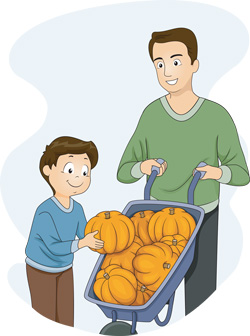
- I can't bear it when people turn up late!
(I can't stand it when people are late!)

- I know you've been waiting a while, but please bear with me a bit longer.
(I know you've been waiting, but please be patient just a little longer.)

- It's so hot. This weather is just unbearable!
(This weather is intolerable! It's so hot!)

Bare
The word bare is usually an adjective. It means that something is without clothes or uncovered. When people walk on the beach, they often like to go barefoot (i.e. without shoes).
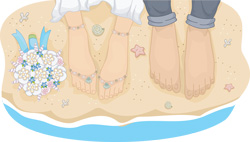
Bare can also mean basic or empty. Rooms without furniture are bare, as are trees without leaves.
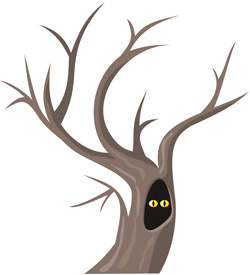
Another definition of bare is simple or straight forward. For example, people often speak about the bare essentials or the bare minimum, which are the basic things you need in order to do something.
Bare can also be used as a verb. When used in this sense, it means to remove or to uncover something. When people go to the doctor, they often have to bare part of their bodies so that the doctor can examine them.
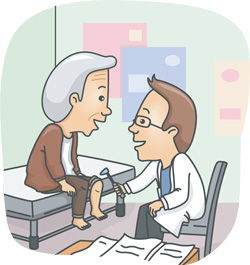
Examples:
- The summer sun feels wonderful on my bare shoulders.
(I love the way the sun feels on my uncovered shoulders.)

- When I'm in my house, I like to go barefoot.
(I don't usually wear shoes when I'm in my house.)

- I always make sure to keep the bare essentials in my refrigerator. I always have plenty of milk, juice and bread.
(I always keep basic ingredients in my fridge, like milk, juice and bread.)
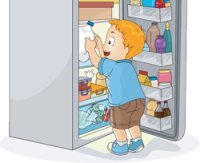
- The house looked slightly bare before we put up the decorations.
(Without decorations, the house looked empty.)

- I don't like winter, because the trees look so bare without their leaves.
(I don't like winter, because trees look empty without their leaves.)

- The lion bared its teeth, frightening the children in the zoo.
(When the lion showed its teeth, the children in the zoo were scared.)
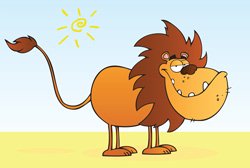
Tips
To remember the difference between bear and bare, try using this: imagine a bear carrying a heavy box. The bear is bearing a load! Because it is difficult for him to bear what he is carrying, the situation of the bear is unbearable.
A Story to Practice Bear vs. Bare
Teddy loves going barefoot. In fact, he can't bear to wear shoes! His favorite thing is to walk in the woods on a summer day and feel the grass on his bare feet, as well as the warm sunshine on his bare shoulders and bare arms. He also likes the spring, and autumn is just about bearable. Winter, however, is another story. Cold weather is unbearable, and Teddy doesn't like it when the trees are bare either. So he mostly goes on his walks in the summer.
Sometimes Teddy packs a picnic to take on his walks. As far as he is concerned, the bare minimum for a good picnic is a peanut butter and jelly sandwich and a box of juice. But usually Teddy brings much more than that.
Now and again, Teddy bumps into a friend while he is outside. He always gives his friends a big bear hug, and then he invites them to share his food. Luckily, Teddy has never seen a real bear in the forest – neither a black bear, a brown bear, or any other kind of bear. Teddy is happy about that, because if he did see one, the bear might want to have some of his food too. And Teddy couldn't bear that!

Quiz
Answer the following 10 questions and then check your answers. Each question is worth 10 points.
Part 1:
- Which of the following is a correct definition of bear?
- To carry
- To uncover
- To remove
- To show
- Which of the following is a correct definition of bare?
- To hold up
- To stand
- To deal with
- To uncover
- Which sentence is written correctly?
- You must be cold. Your arms are bear.
- I can't bear this awful weather!
- I can't bare to think about it anymore.
- I love the way the sun feels on my bear shoulders.
- Which of the following is written incorrectly?
- Do you want some socks? Your feet are bare.
- I've been camping many times, but I've never seen a bear.
- After we threw away the sofa, the room looked very bear.
- I don't like winter because the trees are bare.
Part 2:
- I don't like watermelon. I can't __________ the taste.
- bare
- bear
- bared
- borne
- I love walking __________ along the beach.
- barefoot
- bearfoot
- barefooted
- bearfooted
- The movie was __________. I didn't like it at all!
- bearable
- bareable
- unbearable
- unbareable
- That bridge doesn't look very strong. How can it __________ the weight of all those cars?
- bearing
- baring
- bear
- bare
- The __________ I can sleep is six hours. Less than that and I feel terrible!
- bare minimum
- bear minimum
- bare maximum
- bear maximum
- When they are play fighting, dogs often __________ their teeth.
- bearing
- baring
- bear
- bare
Answer Key
Part 1: 1. A | 2. D | 3. B | 4. C
Part 2: 1. B | 2. A | 3. C | 4. C | 5. A | 6. DGet Updates, Special Offers, and English Resources
Download your FREE GIFT (the first two chapters of
English Short Stories Book and Workbook)
as soon as you join!

By submitting your email, you consent to receiving updates and newsletters from us and to the sharing of your personal data with third parties for the purposes of sending you communications. We will not spam you. You can unsubscribe at any time. For more information, please see our privacy policy.





